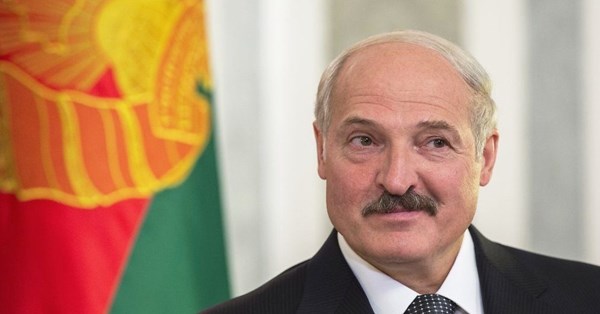Latvia, Estonia and Lithuania declare Lukashenko persona non grata
Latvian Foreign Minister Edgars Rinkēvičs has added Belarusian President Alexander Lukashenko and 29 other high-ranking officials of Belarus to the list of people who are banned from entering the country. The foreign ministries of Estonia and Lithuania made the same decisions.
The statement published on the website of the Latvian Foreign Ministry named the reasons for the sanctions and listed the names of the Belarusian officials.
" Persons on this list are not permitted to travel to Latvia and this prohibition applies for an indefinite period of time. These individuals, through their personal actions, were organizing and supporting the falsification of the 9 August 2020 elections for the President of Belarus as well as supporting the violent suppression of peaceful protests.," the statement reads.
The list includes the heads of the administration of the President of Belarus, the Central Electoral Commission, the Ministry of The Interior and the Ministry of Justice, the Prosecutor General's Office, the State Security Committee, the Investigative Committee, the Security Council, the Committee of State Control and Minsk Executive Committee.
His eldest son, Viktor Lukashenko, who holds the post of assistant to the president for national security and is a member of the Security Council of Belarus and the first vice-president of the National Olympic Committee of Belarus, is the second person on the list after Lukashenko.
"Latvia strongly condemns the falsification of the 9 August presidential elections, the beating of peaceful protestors, and persecution of journalists and activists in Belarus," the Latvian Foreign Ministry said.
At a meeting on 27 August, the Estonian Government decided to impose sanctions against individuals found to be involved in electoral fraud, as well as the use of violence against protesters and human rights violations. "The purpose of the sanctions imposed by Estonia is to condemn the falsification of the election results and violence against peaceful demonstrators and to ensure that those responsible cannot enter Estonia," Estonian Prime Minister Jüri Ratas said at the time.
The head of European diplomacy Josep Borrell said on August 28 that the European Union expects to impose sanctions on high-ranking officials of Belarus as soon as possible because of the elections in the republic, but the final list of persons who fall under the restrictions has not yet been approved. Borrell did not say the exact number of people sanctioned or their names, citing confidentiality. According to him, 11 EU member states have asked Brussels to impose sanctions using accelerated procedure.
Presidential elections in Belarus were held between August 4 and August 9. According to the Central Election Commision of Belarus, Alexander Lukashenko, who has been in power for 26 years, received 80.1% of the vote, and 10.1% voted for his main opponent Svetlana Tikhanovskaya.
The results of the elections in Belarus were not recognized by the United States, Canada, Great Britain and the countries of the European Union, including Belarus’ geographical neighbors - Poland, Lithuania, Latvia and Estonia.
The Belarusian opposition also did not recognize the results of the elections because of mass fraud at polling stations and formed the Coordinating Council for the Transfer of Power. Since August 10, after the announcement of preliminary results, protests began in the country. They have been severely suppressed by the country's security forces. Protesters are demanding new elections.
Earlier,at Lukashenko's request, Putin formed a reserve of law enforcement officers, which, according to the Russian president, will not be used until "extremist elements" start to set fire to cars, banks, and seize administrative buildings.
Lukashenko, for his part, noted that "no soldiers from Russia have yet crossed the border." However, he stressed that neither he nor Putin "will flinch neither his voice, nor his hand, nor the foot in order to tackle anyone who twitches on the western border of the Union State."
According to many political scientists, public figures of Russia and ordinary citizens, one small provocation will be sufficient for Putin to deploy the reserve forces to Belarus.
